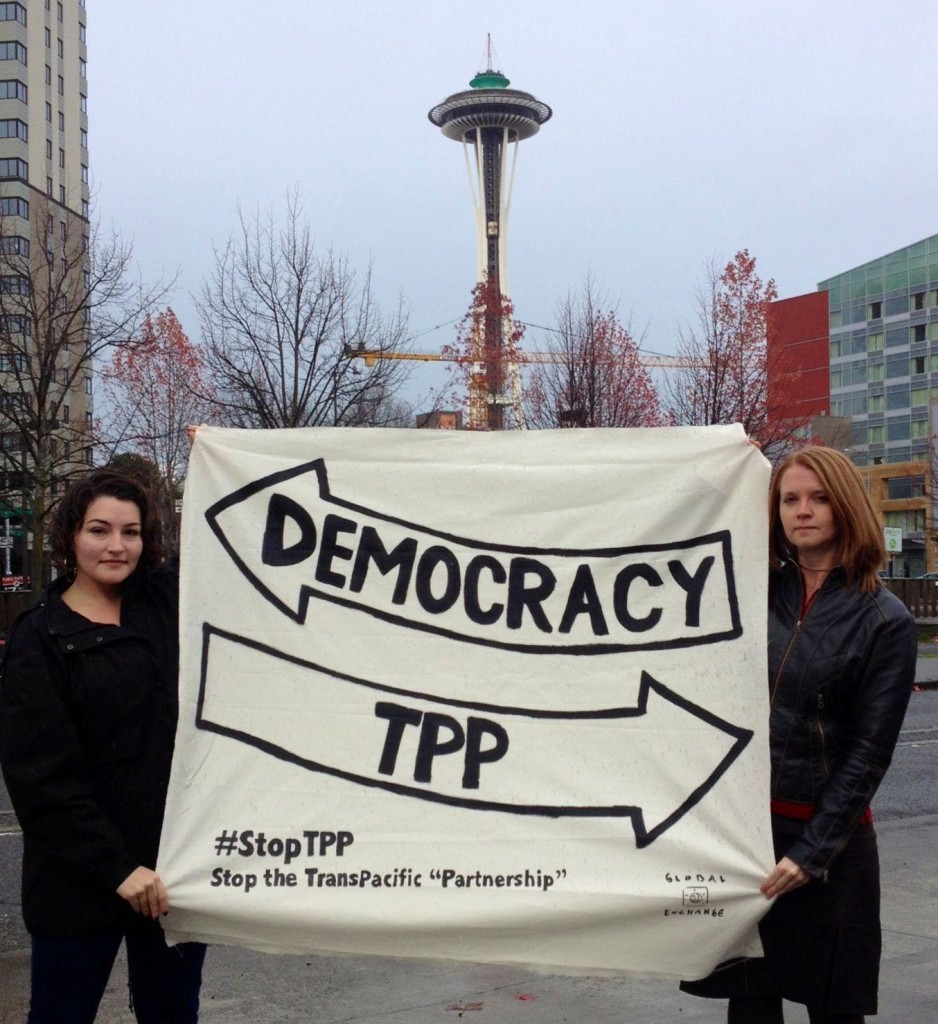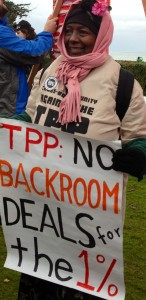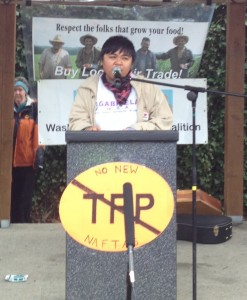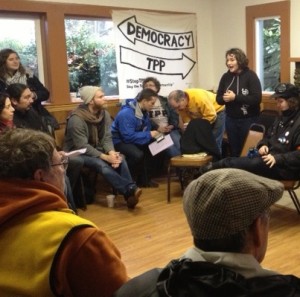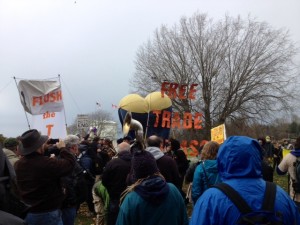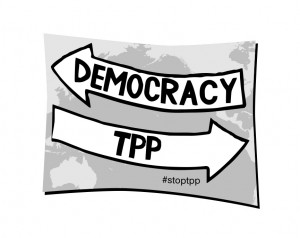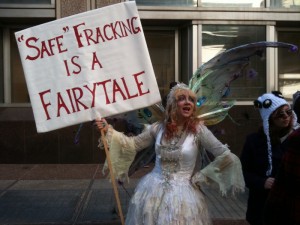The following post was written by Alina Evans and Anna Campanelli, interns with the Global Exchange Community Rights Program.
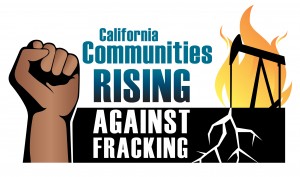 Hydraulic Fracturing (Fracking) is one of the most destructive energy processes on planet Earth – even the EPA reports show that fracking is the second-biggest contributor of U.S. Greenhouse gases. But as California activist RL Miller reports in the Daily Kos, “California’s oil is as dirty as the Canadian tar sands. State data shows that several California oil fields produce just as much carbon dioxide per barrel of oil as the tar sands do. A handful of fields yield even more.”
Hydraulic Fracturing (Fracking) is one of the most destructive energy processes on planet Earth – even the EPA reports show that fracking is the second-biggest contributor of U.S. Greenhouse gases. But as California activist RL Miller reports in the Daily Kos, “California’s oil is as dirty as the Canadian tar sands. State data shows that several California oil fields produce just as much carbon dioxide per barrel of oil as the tar sands do. A handful of fields yield even more.”
Contrary to gas and oil company propaganda, this drilling process is unsafe, unclean, and absolutely not renewable. The truth is fracking is yet another dirty energy scheme poisoning our air, soil and groundwater, and now it’s poisoning us. Gas and oil companies are quietly bringing fracking to the Golden State, placing not just Californians, but the planet at risk. In fact the process has already begun, promising to make California the #1 oil producing state, or as some call it—the Saudi Arabia of the USA—but at what cost? Global Exchange is working with communities to say “no” and along with our partners we’re leading a speaking tour April 15-22 through California’s fracklands to educate and mobilize for action.
How Fracking works:
Fracking is an enhanced drilling technique that through a process of vertical and horizontal drilling enables fracking rigs to extract natural gas and/or oil from shale formations. Millions of gallons of water, sand, and “proprietary” carcinogenic chemicals are injected at high pressures, fracturing the underground shale and releasing “trapped” natural gas and oil. Vertical fracking is employed to increase the lifespan of a pre-existing well, while horizontal fracking is used to tap previously inaccessible shale deposits through an injection process. For a good fracking primer, check out EARTHWORK’s Hydraulic Fracturing 101.
Doing the numbers:
- Between 3-5 million gallons of water are used to frack a single well one time; one well can be fracked 18 times; this means that one fracked well requires between 54-90 million gallons of water in its lifetime-that’s enough to fill up to 9 Yankee Stadiums!
- 90% of wells in the United States are currently being fracked, that’s over 800,000 wells and counting.
- 596 chemicals (known carcinogens) are used in fracking. These chemicals are undisclosed under the trade secret provision protecting energy companies’ proprietary “recipes”
- Each time a well is fracked, millions of gallons of these toxic chemicals are pumped into our earth along with our water.
- On average, 330 tons of chemicals are used per fracking operation—2/3 of the toxic chemicals remain underground.
- Earthquakes in frack zones have skyrocketed in places like Ohio, (not a state previously known for seismic activity) placing geologically sensitive California at extreme risk.
- Extreme energy methods = climate chaos. California’s 15 billion barrels of fracked oil will release 6.45 billion metric tons of carbon dioxide, on par with the Keystone XL pipeline’s carrying capacity in its lifetime (7 million metric tons).
The millions of gallons of toxic waste water produced cannot be processed by wastewater treatment. If the steel/cement casing of a well cracks from the pressure the toxins seep into the water aquifers that we drink from. Exploding wells, dwindling ecosystems, toxic sink water, sickness and deaths of animals and even humans are not uncommon reports coming from US communities who have been subjected to fracking, depending on whether it is natural gas or oil being fracked. The latest report come from Columbus, Ohio where, since March of this year, 11 earthquakes have resulted from fracking operations in the area.
California’s Dirty Secret is about to blow
In the Golden state, fracking is unregulated and unmonitored. Corporations do not need to disclose the toxic chemicals they are using or inform communities that fracking is happening. As a water-poor state, fracking and its toxic wastewater presents a serious danger to our communities and ecosystems. And in a state prone to earthquakes, human induced fault pressures present an alarming geological risk. Fracking proponents claim fracking has been going on for 70 years in California with no harmful effects—a misleading apples and oranges statement at best. Old-school fracking did not use the same chemicals or drill as deeply or horizontally, nor inject the kinds of chemicals that modern fracking uses. As a result of all of this, fracking in California is a well-kept secret: only 50% of residents know what fracking is.But that is about to change. Here in California, as communities are learning about fracking’s dangers, they want to stop it.
Along with our partners, Global Exchange’s Community Rights Program is embarking on a 7-day speaking tour from April 15-22. The tour will visit impacted California communities from San Francisco to San Diego and expose the reality of fracking in the state and engage community members in the movement to oppose and stop this harmful and dangerous practice, exploring with our partners all of the efforts underway statewide to stop fracking from transforming the state and the climate.
Tour stops include: San Francisco, Monterey, San Luis Obispo, Santa Barbara, Los Angeles, Santa Monica, Culver City, and San Diego, **with others still to be added.**
Each stop on the tour will include a day of action: along with our allies, we are working with host communities to strategize and develop unique actions that meet each community’s needs. Each day’s activity will be preceded by a local media plan, social media outreach, collaborative efforts, and planned meetings with various community groups. We expect much of the energy we generate on this tour will build toward larger statewide action.
Confirmed Speakers and partners on the road: We’ll bring Doug Shields, former Pittsburgh PA councilman enacting the first “rights-based” ban on fracking in the nation,
scientists, fractivists, and fracking experts from our partner organizations, many of whom take different approaches to regulate or ban or place a moratorium on the process. Our allies on the road include the Center for Biological Diversity, Food and Water Watch, 350.org, Clean Water Action, Transitions Towns, community-based groups, host community partners, and you! If you are concerned about fracking in your community or in general we are here to help you too! If you would like to join the tour, if you are interested in having us visit your community or if you would like to attend one of the events set up for the tour we’d love to hear from you.
Global Exchange is helping Communities assert their right to say “NO fracking”Five years ago, Global Exchange launched the Community Rights Program confronting corporate power at its core: by challenging unjust law and shifting the balance of power from one that protects the rights of corporations, to one that protects the rights of our communities and the environment. The Community Rights Program enters the California and national fracking debate via our expertise in grassroots, “rights-based” organizing, where we work with communities confronted by various corporate harms to enact local laws that place the rights of residents and nature above corporate interests. A right-based approach not only offers communities a way to stop the harmful practices of fracking in their midst, but addresses the core issue of a system of law that legalizes harmful corporate practices like fracking.
We’ve already been working with a handful of communities to pass rights-based fracking bans, including San Luis Obispo, and Culver City, and we hope to be working with many more. This efforts builds on the success of more than nine communities who have stopped fracking through passing rights-based fracking bans – the most notable in Pittsburgh, PA, led by featured tour speaker, Doug Shields. Across Pennsylvania, New Mexico and New York, nine other communities have followed suit (with many more underway), declaring their right as communities to protect the health safety and welfare of residents and the groundwater they depend on.
LEARN MORE: Want to be a part of the tour? Want the tour to come to YOU?
Contact Community Rights Program Director Shannon Biggs at: Shannon@globalexchange.org or 415.575.5540.
Stay updated on the specifics for the tour at our webpage: or join our list serve (emails twice monthly)
For another take on fracking in California from our Global Exchange colleague Corey Hill, check out this article at the East Bay Express.
Alina Evans and Anna Campanelli, authors of this blog post are interns with the Global Exchange Community Rights Program.




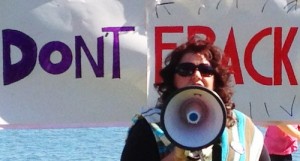
![photo[4]](https://globalexchange.org/wp-content/uploads/photo4-225x300-1.jpg)
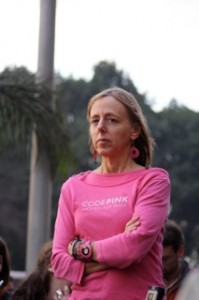 There are many things to be thankful for in 2012, starting with the fact that the world didn’t end on December 21 and that we don’t have to witness the inauguration of Mr. One-Percent Mitt Romney. The global economic crisis continued to hit hard, but people have been taking to the streets around the world, from students in Chile to indigenous activists in Canada to anti-austerity workers in Europe. And while the excitement of the Arab world uprisings has been tempered by divisions and losses, the struggles are far from over.
There are many things to be thankful for in 2012, starting with the fact that the world didn’t end on December 21 and that we don’t have to witness the inauguration of Mr. One-Percent Mitt Romney. The global economic crisis continued to hit hard, but people have been taking to the streets around the world, from students in Chile to indigenous activists in Canada to anti-austerity workers in Europe. And while the excitement of the Arab world uprisings has been tempered by divisions and losses, the struggles are far from over.